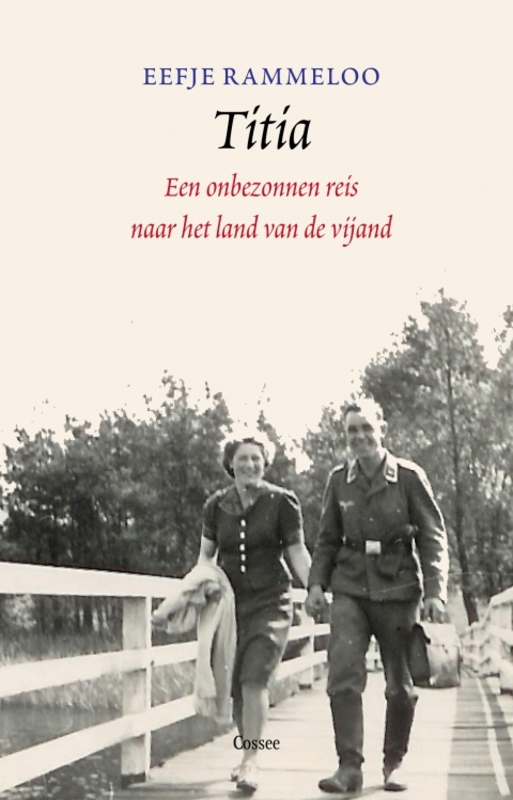
What caused a young woman to move to Germany in 1942? Her family were shocked and couldn’t understand why Titia Vermeulen was going to Germany. ‘It remains difficult’, Eefje Rammeloo writes, ‘to talk with them about their mother. Everybody still fears the worst: a hidden sympathy for the enemy.’
The truth was quite different. Rammeloo was on the trail of an exciting piece of family history but found a trauma transcending generations.
The lively correspondence between Titia and her husband, Wehrmachtsoldat Helmut Vasterman, was preserved. This correspondence includes – among other things – letters from Germany to her family, in which she narrates her pregnancy, her fears and her dream of a united future. But how could she remain so silent about the war while living in Germany?
Titia certainly didn’t empathize with the Nazis. So was she naïve? Piece by piece, the image of a head-strong, intelligent and determined young woman is sketched, a woman who escapes from the narrow-minded Catholic world of Amsterdam, looking for freedom. Helmut is her opportunity to escape and slowly becomes her great love. He is not a Nazi. Still, to our surprise, we read how the young family falls between two stools after the liberation, how they end up in the south of Holland, in Limburg, and how their children become the victims of prejudice.
‘Rammeloo ‘reconstructed’ the story of her grandmother Titia based on a box full of letters, notebooks and photo albums, based on interviews and journeys. She tells the story in a simple, effective style, without drama and without judgement. Its frankness is exactly what makes it admirable.’ – Het Parool *****
‘Eefje Rammeloo reconstructed the shocking life story of her grandmother.’ – Nederlands Dagblad
‘A thunderous debut, which convinces me again how reality can be caught in the act. Fiction can be beautiful but non-fiction can even be better. Real life can conceal a treasure in themes and motives. The story of our grandparents is extraordinary and represents the stories of thousands and millions different stories about the Second World War.’ – Piet Kaptein
‘Eefje Rammeloo tells a good story in her debut. You can easily enjoy reading it. It shows grand historical events through a personal story, which is always best. And it shows us again the problems with which ‘exceptions’ have to cope. Rammeloo portrays the hopelessness and the tensions beautifully. Helmut reconciles with the Netherlands reluctantly. A beautiful reflective book.’ – Literatuurplein
‘An intriguing history from the author’s grandparents. About strong characters and the wish to lead a ‘normal’ life, no matter what. A well told story with excellent research!’ – Van Stockum Book Sellers ****